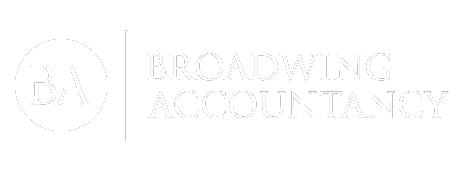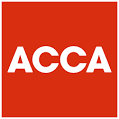No matter what your industry, as a start-up you’ll have a million and one things to do in order to get your business up and running. So, finding time to devote to accounting and financial matters probably isn’t on top of your to-do list.
However, submitting annual accounts is mandatory for any business and being on top of your finances will help your new business succeed. Gone are the days when an Excel spreadsheet would suffice. In today’s world, bespoke cloud accounting software such as Xero and QuickBooks, automate many time-consuming tasks making it an invaluable tool in both time and money for start-ups and small businesses.
Accounting in the Cloud
It is estimated that in 2017, more than ¾ of small businesses and entrepreneurs in the UK are using cloud accounting solutions to increase business efficiency.
Cloud accounting is similar in many ways to traditional accounting software. It often has a more simplified interface, but the financial data is hosted on remote servers in the cloud rather than held locally.
Businesses using cloud computing software are not tied to having to install, maintain and update programs on individual PCs. Software is not constrained by the processing and memory limitations of individual desktop computers either.
Cloud-based systems also allows all team members from different departments, or those who work remotely, can access the same software and data, making for more joined up and collaborative working with easy access and the ability to set different permissions for different users.
Functionality and Automation
Cloud accounting automates and streamlines accounting tasks. Some of the principle functions cloud accounting software provides include:
- Invoicing – automatically generates invoices and sends them out to suppliers and customers.
- Accounting – view business accounts, including profit and loss accounts, bank statements and aged accounts receivable.
- Bank reconciliation– automatically match bank transactions to credits and debits on your ledger.
- Payroll functionality– generate P45s and P60s, make direct payments and manage deductions.
- Third party app integration– integrate with third-party ecommerce platforms, such as Shopify.
- Mobile access– access financial data from mobile devices wherever you have an internet connection.
- Full reporting– full reporting functionality that you can export into common file formats such as Excel compatible xls and csv files.
Real-Time Reporting
Within the first 5 years of business, 1 in 4 small business fails. Would a more efficient way of financial reporting and advice play a key factor in the survival rate of a small business?
Maybe…!
One principal advantage of using accounting software is that it’s easier to generate real-time reporting. A cloud accounting set-up provides a business with an accurate, up-to-date and customised overview of its finances.
With a truly real-time view of your start-up’s finances, many of the common business pitfalls which can lead to a company failing, can be avoided.
Using cloud accounting systems, you will be able to see, at a glance, your revenue figures, expected cash position, outstanding invoices and current debts.
Keeping Financial Data Safe in the Cloud
It’s not just large businesses that are at risk from cyber-attacks and having their financial data stolen. Increasingly, cybercriminals are targeting small businesses who are more vulnerable, due to having weak cybersecurity policies and systems in place to protect themselves.
Cloud accounting provides a very secure method of protecting sensitive and business critical financial information by storing business it remotely instead of locally. If businesses rely on the hard drive of a PC, business owners are putting their critical financial information at risk, both through cyber-attacks and physical theft of equipment.
Cloud accounting leaves no trace of financial information on any company computers. Data in the cloud is encrypted and can only be accessed with a password.
Sharing financial data is also less risky on the cloud, as multiple employees simply need to log on to the same system with their own unique passwords.
The Cost Effectiveness of Cloud Accounting
When starting a new venture or even a small business on a tight financial budget, very penny counts. With cloud accounting systems, there are fewer overhead expenses – IT staff are not required to update and maintain the platform and no new software needs to be purchased. So, cloud accounting can be a cost-effective way for businesses with small budgets to take care of their accounting requirements.
Moving to digital systems means less paperwork for SMEs to fill out, as the automated processes do it for you, all in real time.
Small businesses do not have the time to spend on lengthy accounting tasks, or the financial resources to invest in large-scale data centres. Moving to cloud accounting means you don’t have to purchase physical servers, so therefore you’ll save money and help you manage cash flow cost-effectively.
Finally, because cloud accounting solutions are modular, you only pay for the functions and features you need. You can always purchase add-ons, with more complex functionalities as and when you need to.
You don’t have to wait until a new tax year to move to the cloud, as the data stored on manual systems or spreadsheets, can be imported directly to cloud systems.
Having the right tool for the job is essential for every business. By streamlining accounting processes, keeping vital data safe and making tasks more accessible and flexible for everyone, accounting software is one tool no small business should be without.
To find out how Cloud Accounting could benefit you and your start-up, call Brian TODAY on 01604 328328, or email [email protected] for further information.






